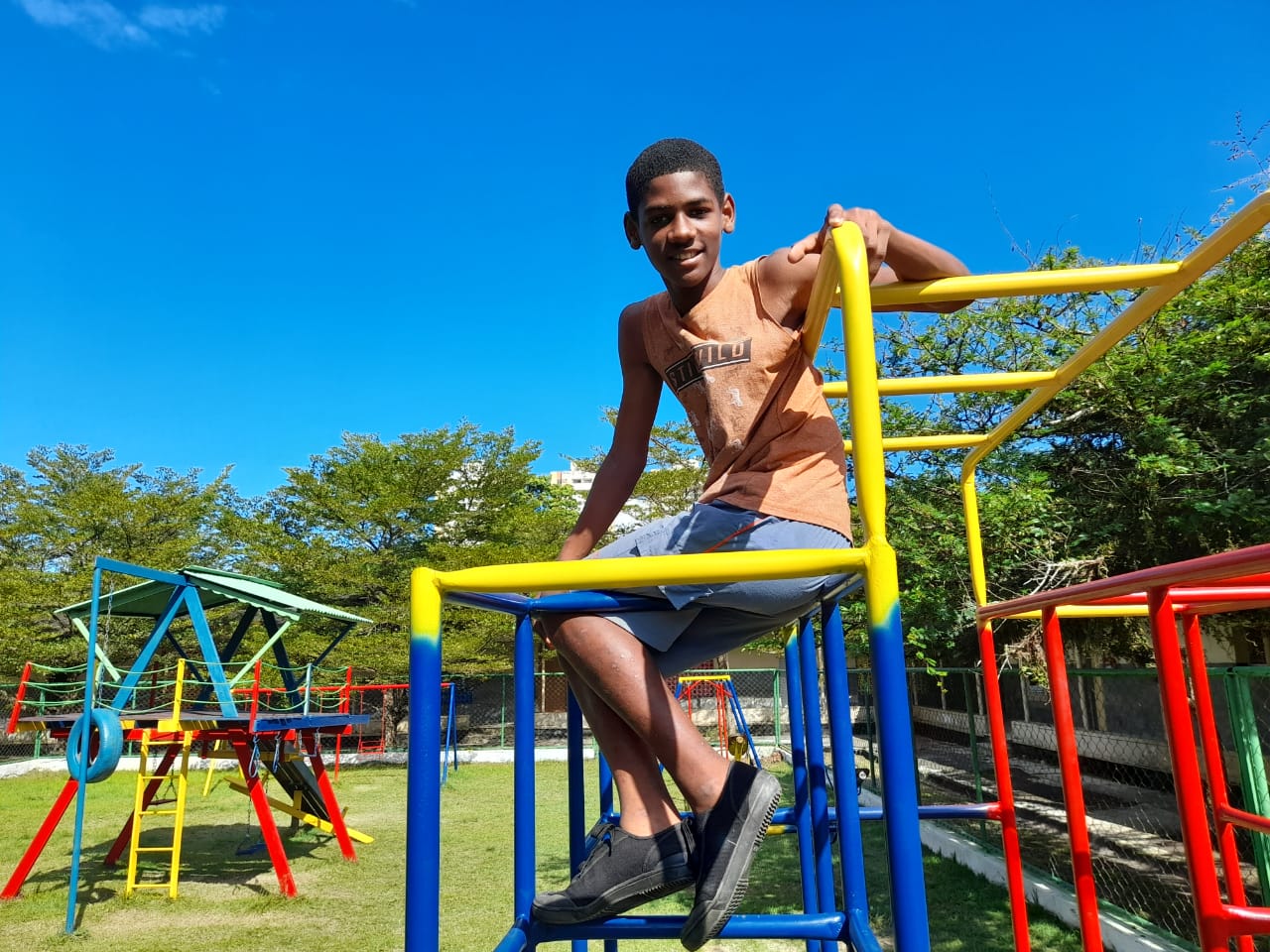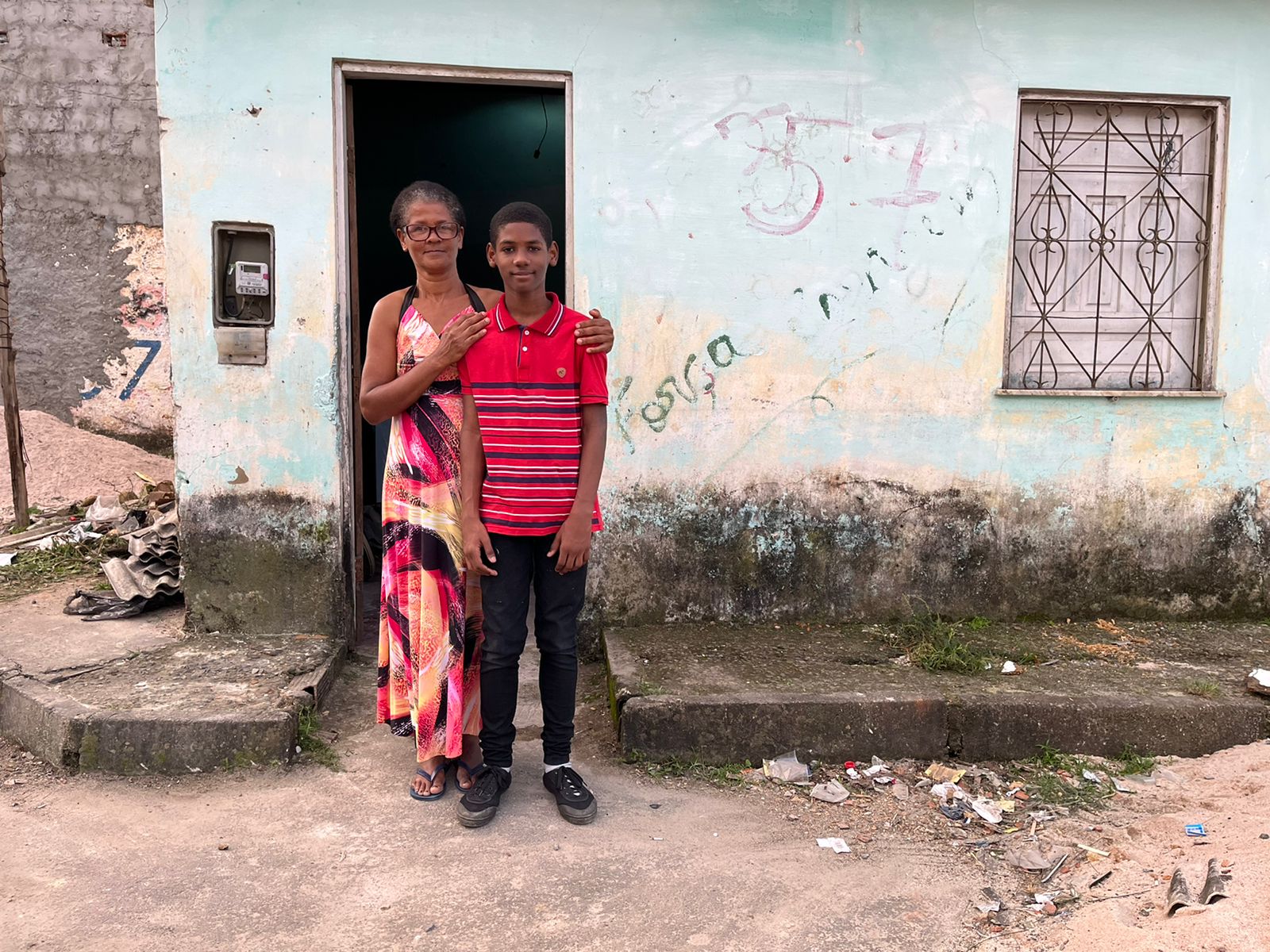Helping flood-affected families in Bahia, Brazil

“This project was the best I’ve ever seen in my life. If I could not leave him there, he would have to come to my workplace and stay there while I was housekeeping. Now he can learn capoeira and socialize with other children. It is like a school to him. He comes home very happy every day.” – Rosimeire, Adson’s mother.
In December 2021, heavy rains hit southern Bahia and northern Minas Gerais in Brazil, causing severe flooding. The government declared a state of emergency in 163 municipalities. In Bahia, the disaster left 26 people dead and 520 injured. In addition, 28,224 people were left homeless, and 73,032 were displaced. Many houses, schools, hospitals, health posts and social assistance centers were severely damaged. Adson and his mother, Rosimeire, were two of the 856,917 people affected by the floods.
In partnership with Google, the Center for Disaster Philanthropy awarded a grant to AVSI Brasil to fund a project to help children and families in the affected area. The project’s goal was to create a safe environment and promote children’s psychosocial well-being by creating and running a child-friendly space (CFS). Eleven-year-old Adson was one of the project participants.
In October 2021, Rosimeire made the difficult decision to move out of the house she owned in Gogó da Ema, Itabuna, due to increasing violence in the neighborhood. With the money received from a government income transfer program for families in extreme poverty, she rented a studio in the nearby community of Jaçanã. Two months later, severe flooding affected both her home and the property she rented.
"Water came from all sides. There was a river nearby, and it overflowed. We lost everything, but thank God we are healthy," said Rosimeire.
When the studio apartment started to fill with water in the middle of the night, Adson was asleep. “When my mother woke me up, our home was already flooded. She carried me out of bed and put me on top of the stairs so I wouldn’t step in the water,” recalled Adson.
While waiting for the water to recede, Adson and his mother spent two days sharing a room with the landlord, who lived on the property’s top floor. When they could finally return to their apartment, they found it covered in mud.
“The dirty water ruined everything,” mourned Rosimeire.
At their house in Gogó da Ema, the situation was even worse. “The water reached halfway up the walls, and the storm ripped off the tiles,” said Rosimeire.
Adson and Rosimeire show their house, affected by the flood that hit Itabuna.

For a single mother who works in the informal job market, recovering from the floods was no easy task. And, of course, the COVID-19 pandemic exacerbated the situation. Due to the pandemic, all public schools in the city of Itabuna remained closed for more than two years, meaning that Adson had no place to go during the day.
“When our house flooded, all public schools were closed due to the pandemic, so my mother had to take me every day to her workplace, where she worked as a housekeeper. I would sit there all day, playing on her cell phone, while she was working,” said Adson.
To support families affected by the floods, AVSI Brasil, in partnership with CDP and Lar Fabiano de Cristo, established a child-friendly space in Itabuna, Bahia. AVSI renovated a classroom and a playground and acquired age-appropriate equipment and materials needed for educational activities. The initiative provided children with a safe environment for learning, playing and socializing while their families tried to recover from the disaster.
One of the activities offered at the CFS was capoeira classes. Capoeira is a mix of dance and martial arts. In 2014, the United Nations Scientific and Cultural Organization (UNESCO) granted capoeira the status of cultural heritage of humanity in part due to its key role in fighting racism and prejudice.
As soon as Adson learned about the capoeira classes offered at the CFS, he joined the group. He also enjoyed playing traditional Brazilian games, like Sea Captain and Pega-Pega.
Adson reads a book in the renovated classroom at the CFS.

“Now I can stay at the child-friendly space to play, make friends and learn new things. We learn a lot here.”
For Rosimeire, the project brought the relief of being able to leave her son safely while she worked to recover what they lost. “This project was the best I’ve ever seen in my life. If I could not leave him there, he would have to come to my workplace and stay there while I was housekeeping. … Now, he can learn capoeira and socialize with other children. It is like a school to him. He comes home very happy every day.”
In total, the CFS project provided a safe space for 120 children aged 6 to 14 and their families in Itabuna. In addition to offering socio-educational activities, the project supported families by providing referrals to the municipality’s social assistance network and distributing hygiene kits containing soap, liquid detergent, toothpaste, toilet paper, disinfectant and hand sanitizer.
CDP is proud to support AVSI’s efforts to help children and families in Brazil recover from the devastating flooding and minimize the socio-emotional problems caused by the disaster.
Story by Ruja Entcheva
*This impact story was adapted from content submitted by AVSI Brasil.
